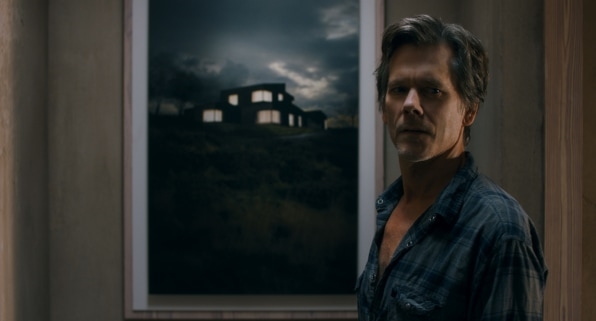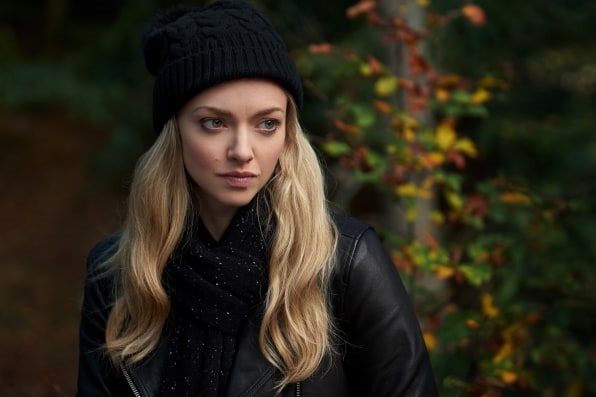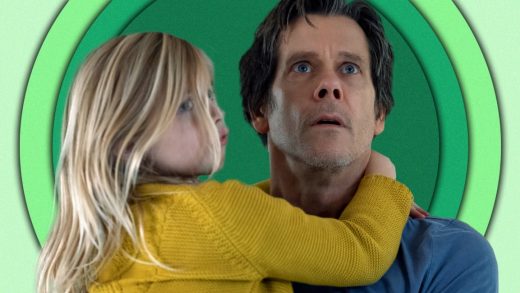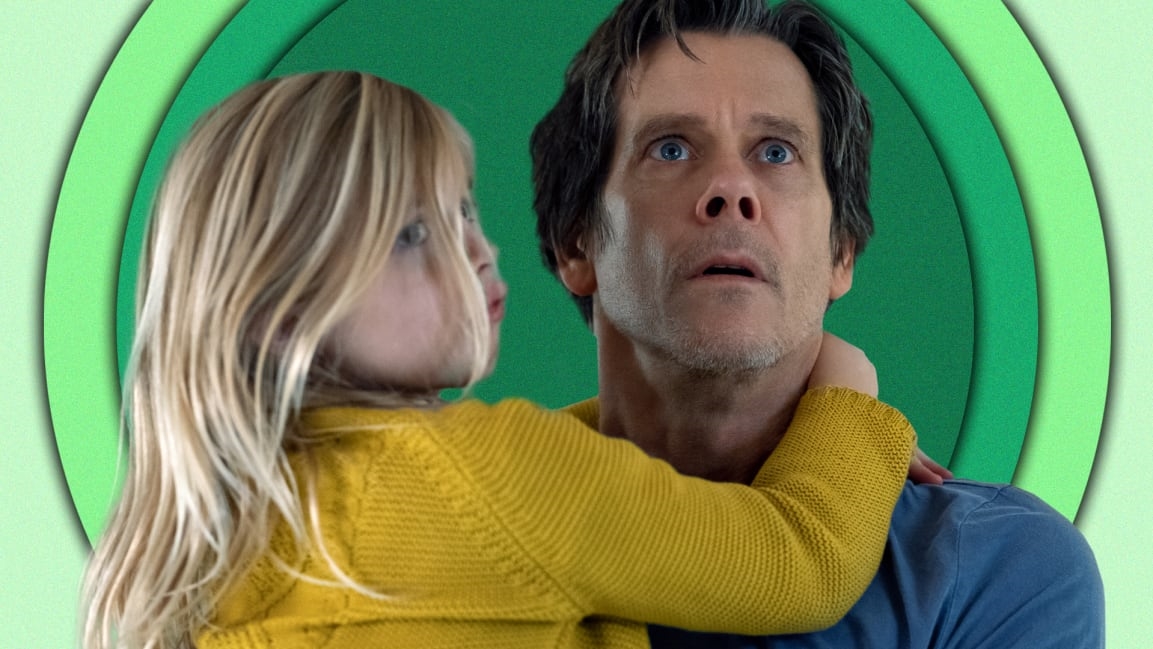‘You Should Have Left’ is a horror movie about the impossibility of escape. Imagine that
Summer movie season is an instant portal to faraway worlds, welcoming sun-drenched dreamers from the sizzling streets for two mindless hours at a time.
At least, that’s how it normally works.
This summer, COVID-19 has rendered movie theaters off-limits as a refuge, and all the superhero fare has been shoved back to 2021.
It’s an ideal time, however, for the writer behind escapist classics like Jurassic Park and Spider-Man to VOD-drop a scary movie about the impossibility of escape—which viewers will likely watch in the homes they’ve scarcely left for the past three months.
You Should Have Left follows scandalized finance guy Theo (Kevin Bacon), his decades-younger actress wife, Susanna (Amanda Seyfried), and their preschooler daughter on a Welsh retreat to the world’s worst Airbnb. It seems that the mysterious Superhost of this house has installed some unexpected features—like secret levels, un-turn-off-able lights, and bonus staircases that appear out of nowhere. Not long after arriving, the family finds their spooky temporary residence simultaneously uninhabitable and devoid of an exit strategy.
And that’s when the real scares begin.
Filmmaker David Koepp, who wrote and directed You Should Have Left, first collaborated with Kevin Bacon on 1999’s Stir of Echoes. The pair had been talking intermittently over the ensuing years about working together again. Their hypothetical project had two stipulations: It should be a scary movie, and it should be about a marriage.
After reading a 2017 review in The New York Times for Daniel Kehlmann’s novella You Should Have Left, Bacon suggested the book to Koepp as potential source material they could mine. They both read the book shortly after, and loved it. They glommed onto the setting, an atypically spooky house. They fawned over how the marriage lies at the dead center of the story, rather than merely functions as an element acted upon by it. Koepp also loved that the book taps into a fear that is both timeless and accidentally relevant: the feeling of being trapped.
“I’ve been doing trapped-in-your-creepy-house movies for 25 years now,” says Koepp, who is behind claustrophobia-inducing flicks such as Secret Window and Panic Room. “It’s one of my favorite things. I like the notion that the creepiest setting of all is your own home and that you can’t trust it. You don’t know it as well as you think you do. Both in terms of story and metaphor, there are things underneath, things unexplored, and things that are buried.”
The inescapable house is a natural setting for mounting dread, the familiar made strange. It’s a subgenre that delivers a far different flavor of scares than cabin-in-the-woods movies, with a rich history in film and TV going back to the “Little Girl Lost” episode of The Twilight Zone, and the film Poltergeist, which was partly inspired by it. (Not to mention all the literature.) Koepp set out to make this somewhat familiar genre feel strange again, though, by making his creepy house as creepy as possible.

[Photo: courtesy of Universal Pictures]
The house in You Should Have Left looks deceptively inviting. As a horror movie audience, you might naturally see its heavily windowed, vaguely Parasite-like splendor soaked in the poster’s night sky and think, “Nope!” But on paper, it looks like a luxurious curio.
Inside, it’s another story, the stuff of deep nightmares. Its unexplained expanses suggest you could be trapped in there forever, beyond death even, something far more disturbing to contemplate than an ax-wielding maniac.
“We’ve all seen scary movies, and we’ve all seen scary houses, and they tend to be of a type,” Koepp says. “It’s an old house, often Victorian, that’s got a lot of strange nooks and crannies and broken things. And I didn’t want to do that. I wanted to do sort of the opposite. I wanted a modern place that had really clean lines and was almost bland because it felt to me like that’s easier to get lost in. If all the hallways sort of look the same and there’s this sense that it could be unending, I found that creepier.”
Something else that makes the film’s setting even creepier, of course, is what Koepp couldn’t have possibly anticipated: the pandemic that forces viewers to watch it from their by-now too-familiar homes.
Koepp and company had finished making the movie and were just beginning to talk about a release strategy when the coronavirus hit, shutting everything down. Once Universal decided to release some of its forthcoming films like King of Staten Island directly to VOD, all parties involved agreed that was the way to go. Koepp never even considered holding the movie until theaters reopened.
Now people stuck at home could watch a movie about people stuck at home in an even more malevolent sense. The nightmare scenario feels a little more real. We’re all currently having a taste of a horror we can’t flee. One could uproot their whole life and move to a new city during the summer of COVID-19, only to be trapped inside somewhere else. To a certain degree, wherever you are, there is no escape.
The psychological shadow of this reality is a special effect beyond anything Industrial Light and Magic could ever concoct.
“It’s just coincidental,” Koepp says, “but surely that crossed my mind.”

[Photo: Nick Wall/Universal Pictures]
There’s another way that this movie feels rather timely for the moment. You Should Have Left isn’t just about being unable to escape a house; it’s also about being unable to escape your past. Although the film was initially conceived in the aftermath of the #MeToo era, it’s arrived at another reckoning. Whether it’s police officers finally being held accountable for years of uninhibited brutality, or TV stars being outed for racist behavior, the past has come back to haunt people during the Black Lives Matter revolution.
The specter of a reckoning lurks throughout You Should Have Left, too, even if it’s of a far different kind than what is currently happening right outside your door.
“There’s a great line from a Warren Zevon song: ‘Some days I feel like my shadow is casting me,’” Koepp says. “And I just love that. I wanted to have two characters in this marriage who both have sort of shadowy sides and may or may not be guilty of some things that the other one doesn’t know about.”
Just like a second wave of COVID-19, or the unearthed racist footprint of a beloved entertainer, You Should Have Left is a horrifying reminder that you may be done with the past, but the past may not be done with you.
Fast Company , Read Full Story
(91)



